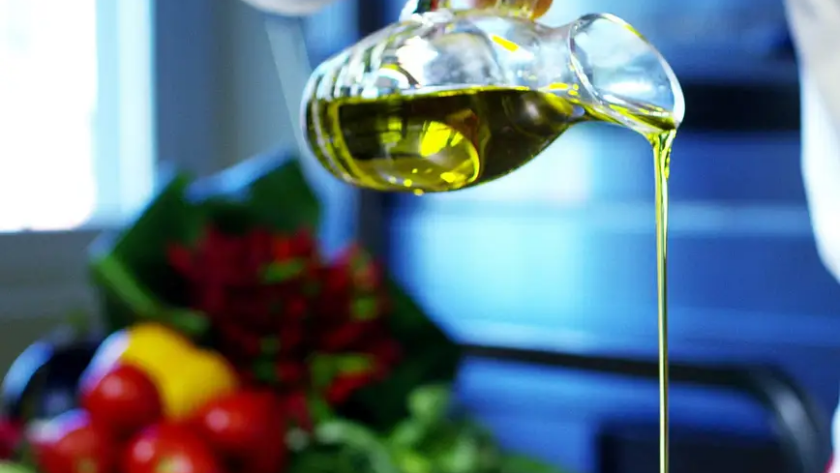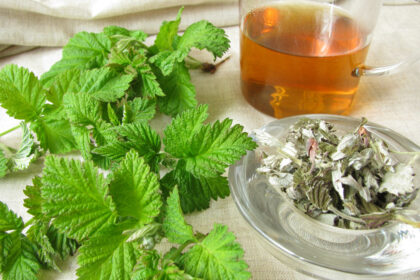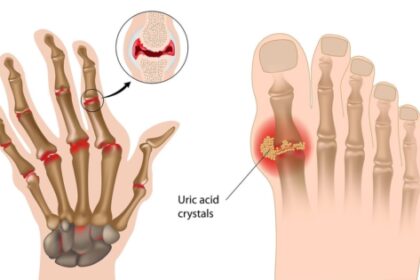For those struggling with frequent pain and swelling, ibuprofen can seem like a lifesaver. But concerns over its long-term use are valid. The good news? There’s a natural anti-inflammatory that may rival ibuprofen’s effects, without the adverse risks.
This potent plant compound has been shown to inhibit the same inflammatory enzymes and pathways targeted by common NSAID medications. Human and animal studies demonstrate its ability to effectively decrease joint pain, swelling, and inflammatory biomarkers. Some research suggests it may even exceed ibuprofen’s capacity to reduce inflammation.
Unlike synthetic drugs, this antioxidant offers additional protective cellular benefits and shows promise in treating gastrointestinal conditions. And while typical doses via diet are low, regularly consuming this anti-inflammatory ingredient could provide cumulative relief.
So what is this safer, natural alternative to ibuprofen? It’s oleocanthal – a unique antioxidant found exclusively in extra virgin olive oil. Consuming high-quality EVOO offers access to this potent anti-inflammatory and pain reliever.
In this article, we’ll summarize the science on oleocanthal’s benefits and explain how to select and use olive oil to maximize its pain-fighting potential.
What Is Oleocanthal
Oleocanthal is a natural anti-inflammatory compound found abundantly in extra virgin olive oil. Structurally similar to ibuprofen, oleocanthal works in a very similar way – inhibiting inflammatory enzymes and pathways that are targeted by common NSAID pain relievers.
Research suggests oleocanthal helps reduce joint pain and inflammation in a dose-dependent manner, meaning consuming higher amounts leads to greater effects. In addition to its anti-inflammatory properties, oleocanthal also demonstrates antioxidant, antimicrobial, and neuroprotective abilities.
However, the concentration and potency can vary dramatically based on olive cultivar and processing. While the typical dietary intake via olive oil may be too low to rival ibuprofen, regularly consuming high quality extra virgin olive oil provides cumulative anti-inflammatory benefits that promote health and may relieve pain over time.
Click Here To Check Out Starwest Botanicals Fresh, Organic Extra Virgin Olive Oil
Overall, oleocanthal is a promising natural compound that may explain some of olive oil’s anti-inflammatory and pain-relieving properties.
Here Are 11 Other Research-Backed Health Benefits Of EVOO
1. It’s Packed With Polyphenols.
Extra virgin olive oil is a particularly abundant source of polyphenols, natural bioactive compounds with antioxidant properties that are found in plant foods like fruits, veggies, and olives. Polyphenols benefit health, in part, because they combat oxidative stress—a type of stress within the body that damages lipids, proteins, and DNA in a way that contributes to heart disease, cancer, diabetes, and dementia. Two abundant polyphenols present in olive oil are hydroxytyrosol and oleocanthal, which have antioxidant, anti-inflammatory, cancer-fighting, neuroprotective, and antimicrobial properties.
2. It Strongly Promotes Cardiovascular Health.
Olive oil is considered heart-healthy for (many) good reasons. In the frequently cited PREDIMED study, people who ate a Mediterranean-style diet that included 4+ tablespoons of extra virgin olive oil per day had a lower risk of developing cardiovascular disease, and their combined risk for heart attack, stroke, and death from heart disease was around a 30% lower than people who ate a low-fat diet. EVOO has also been linked to improved cholesterol levels and reduced blood pressure. Oleic acid (the most abundant MUFA in all olive oil grades) and various polyphenols are likely to thank, given their ability to reduce inflammation and oxidative stress, and modify cholesterol levels in the bloodstream.
But you don’t have to consume 4+ tablespoons of olive oil per day to reap the benefits. In fact, the U.S. Food and Drug Administration (FDA) says there’s credible evidence to support the claim that consuming 1 ½ tablespoons of oleic acid-rich oils, including olive oil, may reduce the risk of coronary heart disease, provided they replace fats/oils higher in saturated fat and do not increase the total number of calories you eat in a day.
3. It May Reduce Risk Of Certain Cancers.
While no food is a magic bullet for cancer prevention, olive oil consumption may be one reason cancer rates tend to be lower in Mediterranean countries. Findings from a recent 2020 study suggest that extra virgin olive oil triggers changes in gut bacteria that are associated with prevention of colorectal cancer; and previous research has shown that women who eat the most olive oil tend to have a lower risk of colon cancer and breast cancer. Several components of olive oil have demonstrated anti-cancer properties, including oleic acid, hydroxytyrosol, oleocanthal, phytosterols, and squalene.
4. It Supports Healthy Memory + Brain Function.
Oxidative stress is implicated in the progression of neurodegenerative diseases, including Alzheimer’s disease. But extra virgin olive oil’s polyphenols—particularly oleocanthal—function as potent antioxidants that may help counter this effect. A 2019 study on animals found that oleocanthal-rich olive oil helped restore healthy blood-brain barrier function and reduce neuro-inflammation in a way that may slow the progression of Alzheimer’s.
5. It Supports Healthy Mental Outlook + Mood.
Olive oil’s brain-nourishing nutrients can help elevate your mood, too. In fact, fascinating studies from 2010, 2017, and 2019 all support a growing body of research suggesting Mediterranean-style diets can actually help treat depression! In one of the studies, 30% of participants entered remission for their moderate to severe depression after a 12-week Mediterranean diet intervention that included olive oil. Additional research suggests that olive oil’s beneficial fats support the central nervous system, helping nerves function properly and increasing levels of the mood-supporting neurotransmitter serotonin.
6. It Combats Pain + Inflammation.
Olive oil may be a particularly good addition to your diet if you suffer from arthritis or another chronic inflammatory condition. For one, monounsaturated fats have been shown to reduce levels C-reactive protein, an inflammatory marker that’s elevated in conditions like rheumatoid arthritis. Extra virgin olive oil also contains the polyphenol oleocanthal, which has demonstrated anti-inflammatory properties similar to ibuprofen. Some experts believe that regular intake of oleocanthal-containing foods may reduce risk for risk for inflammatory diseases.
7. It May Boost Bone Health + Strength.
In the weird-but-true category: A 2018 study revealed increased bone density among women who had the highest intake of olive oil—results that held true even after accounting for the women’s intake of bone-building calcium and vitamin D. Inflammation in the body can actually turn on osteoclast cells, which break down bone, but researchers speculate that olive oil’s anti-inflammatory polyphenols may trigger mechanisms that help prevent bone breakdown and stimulate bone formation.
8. It Supports A Healthy Gut Microbiome.
Your gut microbiome influences everything from digestion to mood to the appearance of your skin, so keeping it healthy is in your best interest! Great news: Olive oil’s polyphenols may reduce inflammation of the GI tract and foster the growth of good bacteria, according to a 2019 review. Specifically, researchers found that eating about 1.5 tablespoons of extra virgin olive oil per day helped elevate populations of healthy bifidobacteria in the gut.
9. It Supports A Healthy Immune System.
Whether you’re trying to avoid a cold, curb risk of cancer, or manage an autoimmune condition, a healthy immune system is vital. And, turns out, your immune system really likes healthy fats! A 2015 study found that eating 3 tablespoons of extra virgin olive oil every day was associated with greater growth and activation of T-cells, immune cells that attack foreign invaders. On the other hand, eating an equal amount of corn oil, butter, or soybean oil did not have these benefits. Greater levels of polyphenols and MUFAs in EVOO could be to thank. Some researchers also believe it may have a beneficial impact in helping fight infection from COVID-19.
10. It Balances Blood Sugar & May Help Prevent Diabetes.
Healthy fats are a key dietary component for anyone trying to prevent or manage type 2 diabetes. In a 2017 study, people who ate the most olive oil had lower fasting blood sugar and a 16% reduced risk of developing diabetes. All fats help slow the absorption of glucose into the bloodstream, which can keep blood sugar stable, but research suggests the main monounsaturated fat in olive oil, oleic acid, may be particularly protective against insulin resistance. Saturated fats, on the other hand, can promote inflammation and have a harmful effect on beta cells, the insulin-producing cells of the pancreas.
11. It May Help You Lose Weight.
Because olive oil helps keep blood sugar levels stable, it can help curb cravings that might otherwise lead to overeating and weight gain—another reason to ditch your fat-free salad dressing in favor of EVOO and vinegar! A study from 2018 found that overweight women who added 1+ tablespoons of extra virgin olive oil to their morning meal lost more body fat and had a bigger drop in blood pressure compared to women who added soybean oil to their breakfast. Earlier research has shown that high olive oil consumption in the context of a Mediterranean diet doesn’t cause weight gain.
Click Here To Check Out Starwest Botanicals Fresh, Organic Extra Virgin Olive Oil
Of course, olive oil is still a calorie-dense food, so your best bet is to use it to replace less healthy fats in your diet.
12. It’s the healthiest oil you can cook with.
Contrary to popular belief, EVOO actually has a moderate-to-high smoke point of 350⁰F to 410⁰F, however, smoke point does not correlate to how stable a cooking oil is under heat. Research from 2018 suggests that extra virgin olive oil is the most stable cooking oil, resisting degradation better than oils with a high smoke point. This means you can use extra virgin olive oil for sautéing, stir-frying, baking, and even frying. Thanks to its abundance of heat-stable MUFAs and polyphenols, olive oil counteracts the oxidative stress caused by heat and slows the formation of unhealthy compounds, like free radicals. But what really sets olive oil apart as a cooking oil? A 2015 study found that cooking vegetables like tomato, eggplant, and pumpkin in extra virgin olive oil actually boosted the antioxidant content of those vegetables!
The bottom line is that olive oil is incredibly nutritious, and no other cooking oil compares in terms of flavor, versatility, and head-to-toe health benefits. So go ahead, give your meals and recipes a good drizzle (or glug) of this liquid gold.
Tips for Selecting and Using Olive Oil to Maximize its Medicinal Benefits from Oleocanthal
- Look for certified extra virgin olive oil (EVOO). This highest grade contains the most oleocanthal compared to other types of olive oil.
- Check for a harvest date. Fresher oils retain more oleocanthal, so try to use EVOO within 18-24 months of harvest.
- Seek out oils from early harvest or hand-picked olives. These tend to be higher in oleocanthal versus late harvest, machine-picked oils.
- Opt for oils made from olive varieties high in oleocanthal like Koroneiki, Picual, and Moraiolo. The label may indicate the cultivar.
- Look for darker colored, more bitter, pungent EVOOs. These sensory qualities signal higher oleocanthal content.
- Store EVOO away from heat and light to minimize degradation of oleocanthal over time.
- Consume 1-2 tablespoons daily of high-quality EVOO for maximum anti-inflammatory effects.
- Use EVOO in cooking, dressings, marinades, and raw to increase intake. The compound is fairly heat stable.
- Pair EVOO with black pepper, which may enhance oleocanthal absorption.
- Talk to your doctor before discontinuing anti-inflammatory medications and replacing with EVOO.
Click Here To Check Out Starwest Botanicals Fresh, Organic Extra Virgin Olive Oil
Cold pressed from the finest quality fruit of organic olive trees (Olea europaea) to preserve the highest levels of flavor and nutrients, sourced only from the finest quality products from highly regarded suppliers from all around the world.
For those seeking a natural alternative to NSAID pain relievers, the solution may already be in your pantry. Extensive research supports EVOO’s anti-inflammatory oleocanthal as an ibuprofen-like agent that can provide real relief from chronic swelling and pain. By selecting high-quality, fresh olive oils and consuming 1-2 tablespoons daily, you can leverage oleocanthal’s cumulative benefits as part of an anti-inflammatory lifestyle.
Of course, EVOO is not a cure-all and should not replace medical treatment. But incorporating it into a balanced diet and active lifestyle can aid overall wellness. The next time aches and pains flare up, try reaching for EVOO before popping an ibuprofen. Your body may thank you for this time-tested natural remedy.
With emerging science validating traditional medicinal uses, olive oil has cemented its status as a fundamental element of the Mediterranean diet. Its unique healthful fatty acids and anti-inflammatory compounds make EVOO a beneficial staple oil for every pantry.





